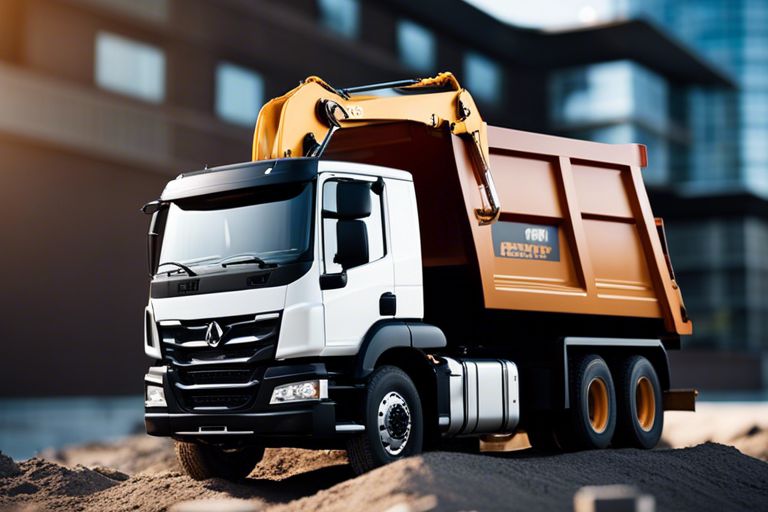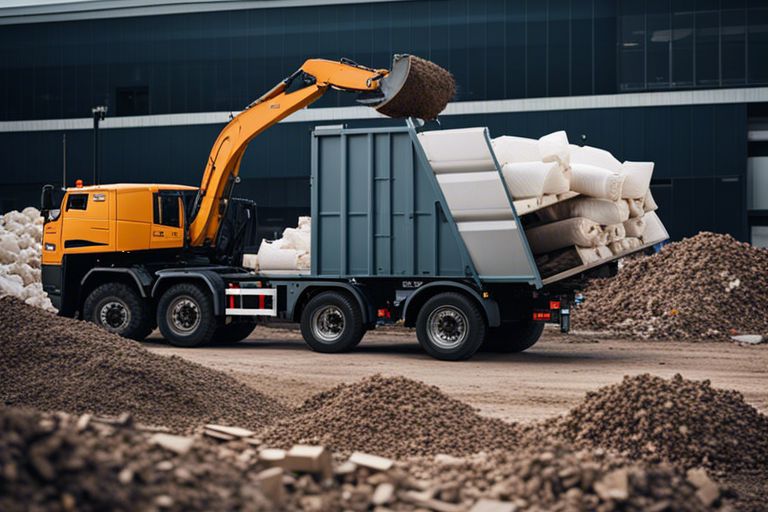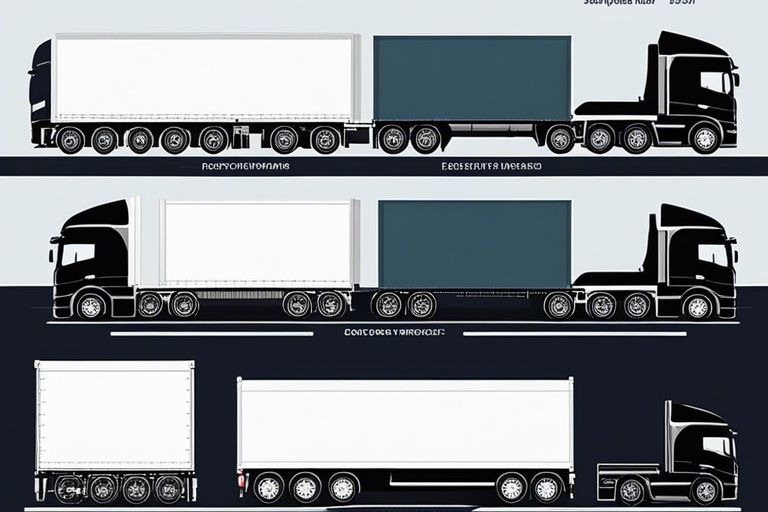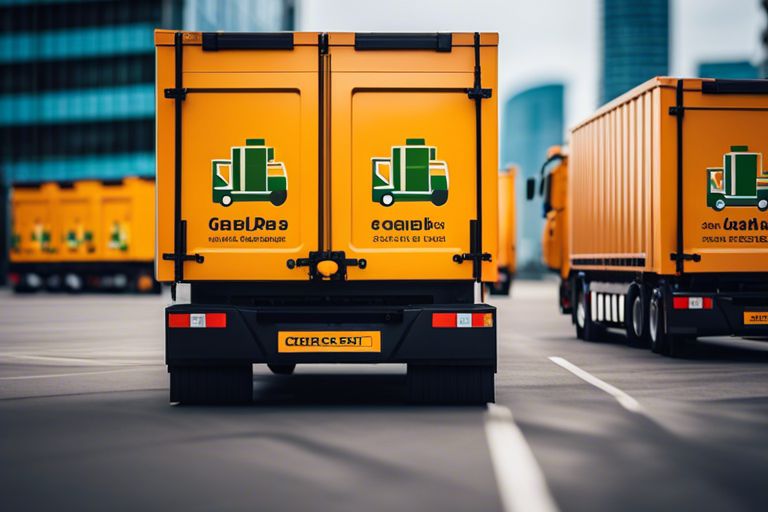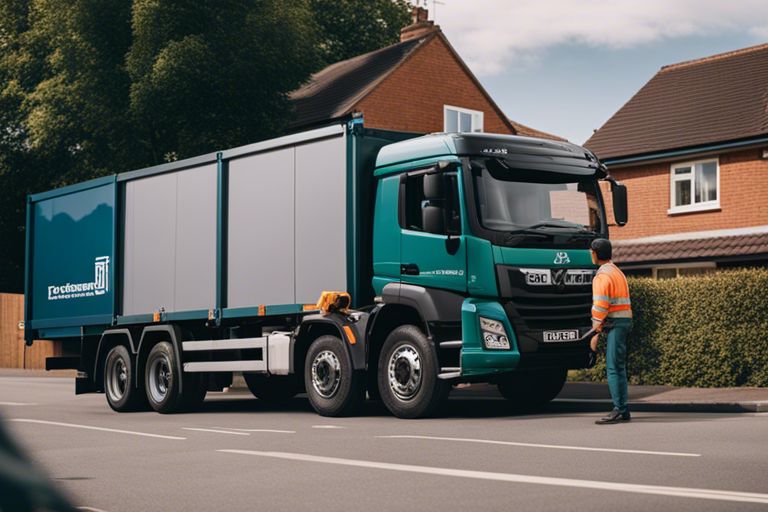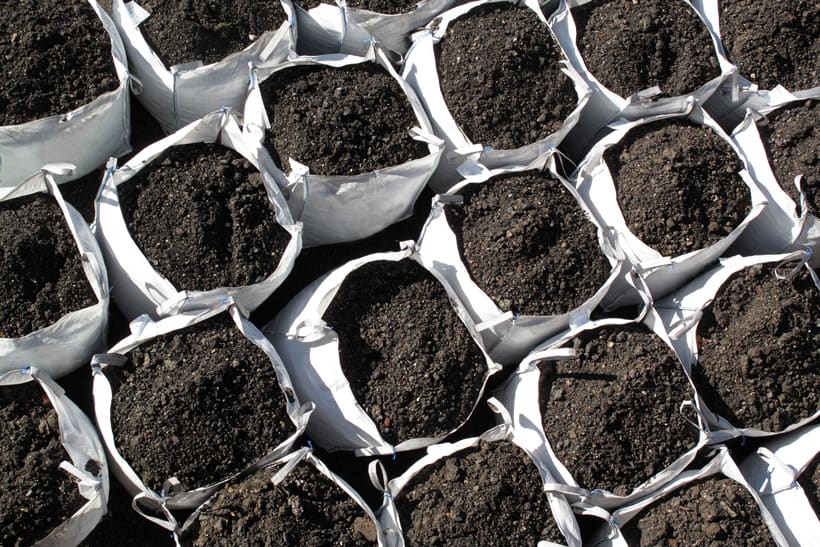Availing of proper hazardous waste disposal methods is crucial for maintaining the health and safety of the environment and public in the United Kingdom. Hazardous waste, which includes substances that are toxic, corrosive, flammable, or reactive, pose significant risks if not handled and disposed of properly. In this comprehensive guide, we will provide essential information on the safe and legal disposal of hazardous waste in the UK, including the identification of hazardous waste, relevant regulations and guidelines, disposal options, and the importance of using authorised waste disposal facilities. By following the guidelines outlined in this guide, individuals and businesses can contribute to protecting the environment and preventing potential harm to human health and wildlife.
Key Takeaways:
- Proper Regulations: The UK has strict regulations in place for the disposal of hazardous waste to protect the environment and public health.
- Authorised Facilities: Hazardous waste must be disposed of at authorised facilities that meet specific criteria and standards set by the Environment Agency.
- Compliance is Essential: It is crucial for businesses and individuals to comply with the hazardous waste disposal regulations to avoid penalties and potential harm to the environment.
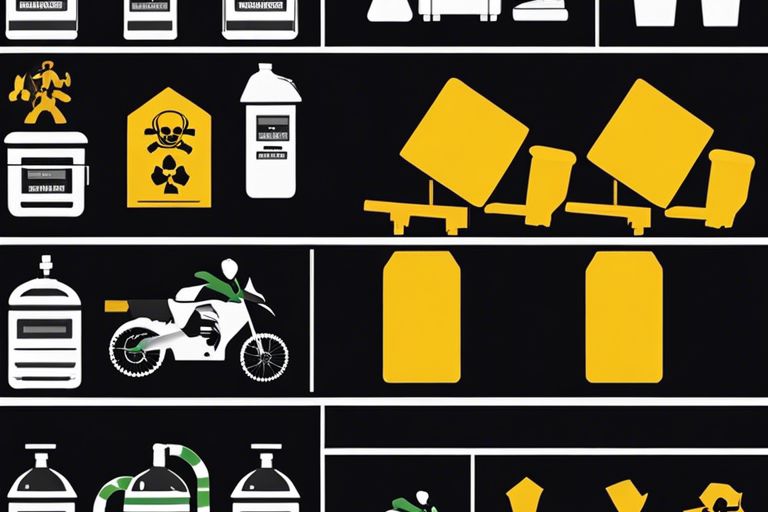
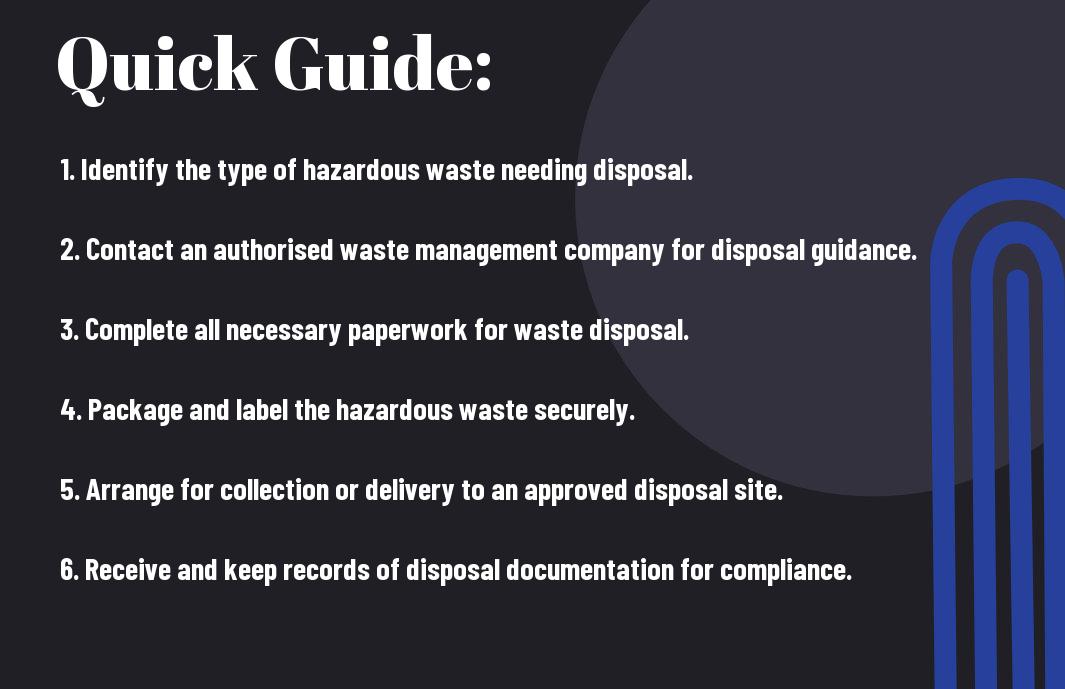
Types of Hazardous Waste
When it comes to hazardous waste disposal, it’s crucial to understand the different types of hazardous waste that can pose serious risks to human health and the environment. Hazardous waste is categorized into several main groups, each with its own distinctive characteristics and disposal requirements.
- Chemical Waste
- Electronic Waste
- Biological Waste
- Radioactive Waste
This classification is essential for proper handling, transport, and disposal of hazardous waste.
Chemical Waste
Chemical waste encompasses a wide range of harmful substances, including acids, solvents, pesticides, and heavy metals. These materials can be highly corrosive, toxic, or flammable, posing significant risks to individuals and the environment. Proper storage and disposal of chemical waste are essential to prevent contamination and harm.
Electronic Waste
Electronic waste, or e-waste, consists of discarded electronic devices such as computers, mobile phones, and televisions. These items contain hazardous materials like lead, mercury, and cadmium, which can leach into the soil and water, causing severe environmental damage. It’s important to handle and dispose of electronic waste responsibly to minimise its harmful impact.
Furthermore, electronic waste often contains valuable materials that can be recovered and recycled, offering both environmental and economic benefits.
Biological Waste
Biological waste includes medical waste, laboratory materials, and animal carcasses, which can harbour dangerous pathogens and infectious agents. Improper disposal of biological waste can lead to the spread of diseases and contamination of the environment. It is paramount to follow strict protocols for handling and disposing of biological waste to protect public health and the ecosystem.
Radioactive Waste
Radioactive waste is produced from various sources, such as nuclear power plants, medical facilities, and research laboratories. This type of waste emits ionizing radiation that can cause serious health effects if not properly contained and managed. Disposal of radioactive waste requires highly specialized procedures and facilities to prevent exposure and contamination.
This underscores the importance of stringent regulations and stringent radiation protection measures in dealing with radioactive waste.
Factors Affecting Hazardous Waste Disposal in the UK
When it comes to hazardous waste disposal in the UK, several factors come into play, influencing the process and regulations surrounding it.
- Legislation: The stringent guidance for the recovery and disposal of hazardous waste set out by the UK government plays a crucial role in shaping the disposal methods and requirements.
- Environmental considerations: The impact of hazardous waste on the environment and human health is a key consideration that dictates the disposal processes.
- Economic factors: The cost and practicality of disposing hazardous waste also heavily influences the methods chosen by businesses and waste management facilities.
Legal Regulations
The disposal of hazardous waste in the UK is heavily regulated by laws and guidelines set by the Environment Agency. These regulations ensure that hazardous waste is handled, transported, and disposed of in a safe and controlled manner, minimising the risk to human health and the environment.
Failure to comply with these regulations can result in severe penalties and legal action, making it imperative for businesses to adhere to the strict guidelines to avoid potential fines and damage to their reputation.
Environmental Impacts
Disposing of hazardous waste improperly can have severe consequences for the environment, including soil and water contamination, air pollution, and harm to wildlife and ecosystems. It is vital to consider these environmental impacts when determining the most appropriate disposal methods for hazardous waste.
Contaminated soil and water can have long-lasting effects on the environment and pose a significant risk to human health, highlighting the importance of proper hazardous waste disposal procedures.
In addition to the risks posed by hazardous waste, there is also the potential for positive environmental impacts if waste is managed and disposed of responsibly, contributing to a cleaner and healthier environment for future generations.
Economic Considerations
The economic considerations associated with hazardous waste disposal play a significant role in determining the methods and facilities used for waste management. Businesses must weigh the cost of disposal against the environmental and legal implications, often opting for the most cost-effective and compliant solutions.
Investing in proper hazardous waste disposal can result in long-term cost savings, as well as improved public perception and reduced liability for potential environmental damage.
Step-by-Step Guide to Hazardous Waste Disposal
When it comes to hazardous waste disposal in the UK, it’s crucial to follow the proper steps to ensure the safety of the environment and public health. Below is a comprehensive guide to help you navigate the process effectively.
Identifying Hazardous Waste
Before you can proceed with disposal, it’s important to correctly identify hazardous waste. This type of waste can be in the form of chemicals, batteries, fluorescent tubes, and electronic equipment. Proper identification is crucial in determining the appropriate disposal method and ensuring compliance with regulations.
Segregation and Storage Tips
When it comes to segregating and storing hazardous waste, it’s important to follow certain guidelines and best practices. Make sure to separate different types of hazardous waste to prevent potential reactions. Store them in secure, labelled containers and keep them in a designated area away from regular waste. Recognizing the potential dangers of improper storage is crucial to maintaining safety.
Additionally, always use spill kits, personal protective equipment (PPE), and ensure that the storage area is well-ventilated. Regular inspections of the storage area are also necessary to identify and address any potential issues.
Choosing the Right Disposal Method
After correctly identifying and segregating hazardous waste, the next step is to choose the appropriate disposal method. This could involve recycling, incineration, or landfill, depending on the type of hazardous waste. It’s important to research and select licensed disposal facilities to ensure compliance with regulations and proper handling of the waste.
Consult with waste management professionals to determine the most suitable disposal method for your specific type of hazardous waste, considering factors such as environmental impact and cost efficiency.
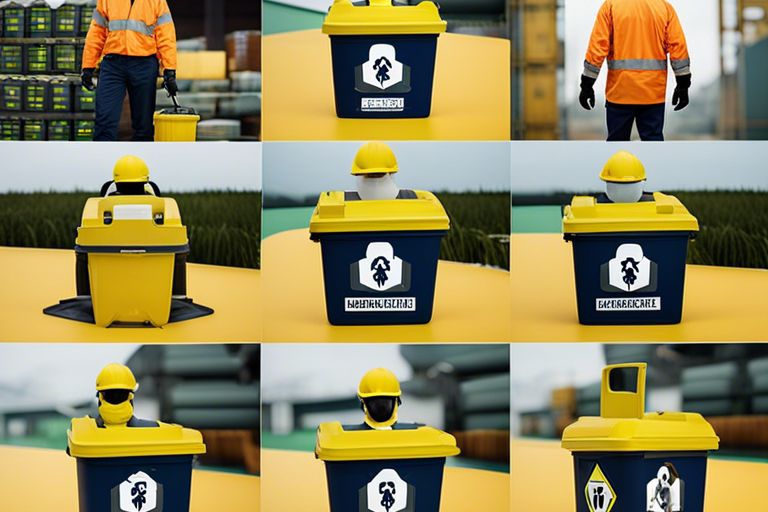
Pros and Cons of Different Disposal Methods
When it comes to hazardous waste disposal in the UK, there are various methods to consider, each with its own set of advantages and disadvantages. It is important to weigh these factors carefully in order to make informed decisions about how best to handle hazardous waste.
| Disposal Method | Pros and Cons |
| Landfilling | |
| Incineration | |
| Recycling |
Landfilling
Landfilling involves burying waste in the ground, with measures in place to prevent contamination of the surrounding environment. This method is relatively inexpensive and can accommodate a wide range of hazardous materials. However, it can pose risks to groundwater and soil quality, as well as potential emissions of harmful gases.
Incineration
Incineration is the process of burning waste at high temperatures to reduce its volume and neutralize hazardous components. While it can be an effective way to safely dispose of certain types of hazardous waste, the process can release toxic pollutants into the air. It also requires careful monitoring to ensure that emissions are within acceptable limits.
It is important to note that incineration can result in the release of harmful pollutants into the atmosphere, posing potential risks to human health and the environment. However, when carried out properly, it can also help to reduce the volume of hazardous waste and mitigate the impact on landfills.
Recycling
Recycling involves reusing materials from hazardous waste to create new products or materials. This method can conserve resources, reduce energy consumption, and minimize the need for new raw materials. However, it may not be suitable for all types of hazardous waste, and the process can be complex and require specialised facilities.
When it comes to recycling, it is important to consider the potential for resource conservation and energy efficiency. However, it is crucial to ensure that the recycling process is carried out safely and in compliance with relevant regulations.
Guide to Hazardous Waste Disposal in the UK
In conclusion, understanding the proper procedures for hazardous waste disposal is crucial to protecting the environment and public health in the UK. This guide has provided detailed information on the regulations and best practices for handling and disposing of hazardous waste. It is essential for businesses, organisations, and individuals to adhere to these guidelines to prevent pollution and contamination of the environment. By following the correct procedures and working with licensed waste management companies, we can ensure that hazardous waste is safely and responsibly disposed of. Compliance with these regulations is not only a legal requirement, but also a moral obligation to safeguard our planet and the well-being of future generations. Let us all take our responsibility seriously and play our part in managing hazardous waste in a way that is safe, sustainable, and environmentally responsible.
Guide to Hazardous Waste Disposal in the UK FAQs
Q: What qualifies as hazardous waste in the UK?
A: In the UK, hazardous waste includes materials such as asbestos, chemicals, batteries, and contaminated soil. These materials pose a risk to human health and the environment and must be disposed of properly.
Q: How should hazardous waste be stored before disposal?
A: Hazardous waste should be stored in suitable containers that are clearly labelled with the type of waste and any hazards it poses. It should be kept in a secure area away from water sources and should be regularly checked for leaks or damage.
Q: Who is responsible for the disposal of hazardous waste in the UK?
A: The responsibility for the disposal of hazardous waste lies with the producer of the waste. This could be a business, organisation, or individual who must ensure that the waste is collected, transported, and treated by a licensed waste management company.
Q: What are the legal requirements for hazardous waste disposal in the UK?
A: The disposal of hazardous waste in the UK is governed by the Environmental Protection Act 1990 and the Hazardous Waste Regulations 2005. These regulations set out the requirements for the storage, transportation, and treatment of hazardous waste to ensure it is managed safely and responsibly.
Q: How can I find a licensed hazardous waste disposal facility in the UK?
A: You can find a licensed hazardous waste disposal facility in the UK by checking the Environment Agency’s Public Register of Waste Carriers, Brokers, and Dealers. This register lists companies and individuals who are licensed to handle and dispose of hazardous waste in a compliant and environmentally friendly manner.

